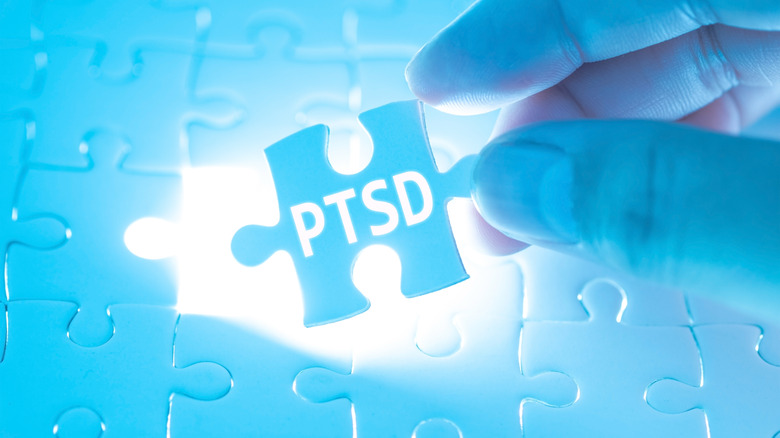Many people believe the common myth that post-traumatic stress disorder (PTSD) only affects veterans who have returned from war. In reality, anyone who experiences extreme life trauma is at risk of developing PTSD.
While the specific cause of PTSD is unknown, researchers believe that witnessing or learning about a life-threatening event can trigger its development, according to the Mayo Clinic. Combat or war, childhood abuse, sexual violence, physical assault, and natural disasters are some examples of traumatic events that can contribute to PTSD.
It’s important to note that not everyone develops PTSD after being exposed to a traumatic event, and researchers suggest that certain risk factors may make someone more likely to develop the disorder. The Mayo Clinic explains that some risk factors include having a family history of mental health disorders, having experienced trauma early in life, experiencing severe trauma for extended periods, and the absence of a healthy support system after the trauma.
In the Diagnostic and Statistical Manual of Mental Disorders (DSM-5), flashbacks are a significant symptom of PTSD that is taken into consideration when determining an official diagnosis of the disorder (per National Library of Medicine). Dissociative reactions, also known as flashbacks, are when an individual feels and acts as though their past trauma is occurring in the present moment. These flashbacks can be immensely frightening and can feel as if someone is reliving their trauma all over again. However, there’s hope that someone can learn to manage and cope with their flashbacks.
What are some ways to cope with flashbacks?

If you’re someone who is struggling with painful flashbacks of your trauma, there are treatment options available that may be helpful to you. People who have been impacted by trauma may benefit from psychotherapy, according to Talkspace. Cognitive behavioral therapy (CBT) is highly recommended by the American Psychiatric Association (APA) as one of the most effective methods for treating PTSD. During CBT, individuals living with PTSD can learn how to change their emotional associations to flashback triggers related to the initial traumatic event. A CBT counselor can assist you in planning and preparing for the next time you experience a flashback and can help you gain a deeper understanding of the traumatic event. Stress inoculation training (SIT) is another form of CBT where a healthcare professional can teach you breathing techniques and other coping skills to alleviate symptoms.
In conjunction with therapy, there are self-care measures you can try that may make it easier for you to cope with flashbacks. Flashbacks usually have a specific trigger, such as encountering a person, place, or object that reminds you of the traumatic event (per GoodRx Health). By becoming aware of your unique triggers, you may be able to prevent unnecessary exposure to them. Keeping a journal is a great way to record your flashbacks and the triggers that led to them. During a flashback, practicing mindfulness and using your sense of smell and touch with calming objects could help you become grounded.







